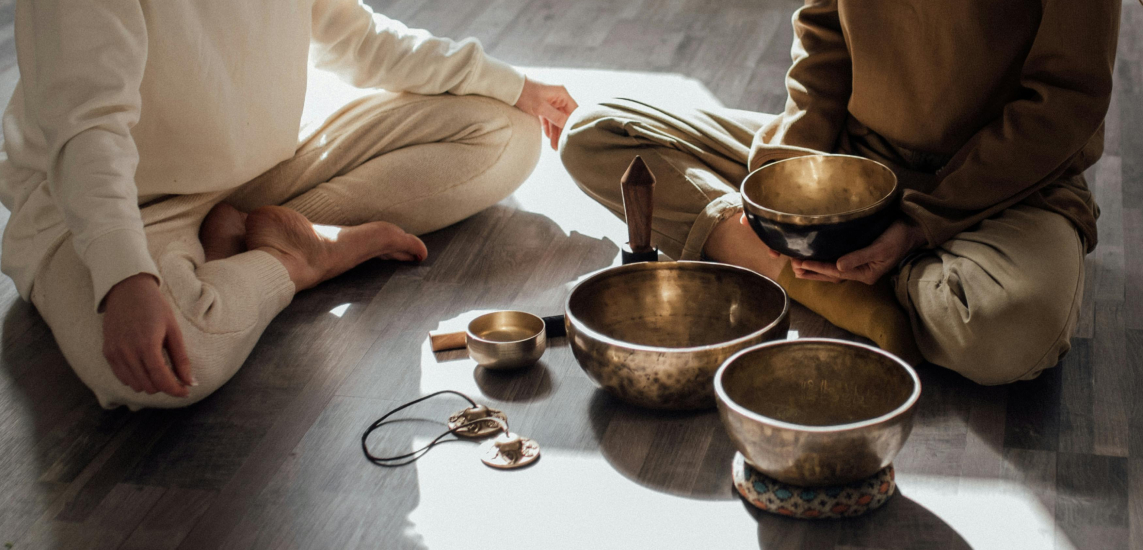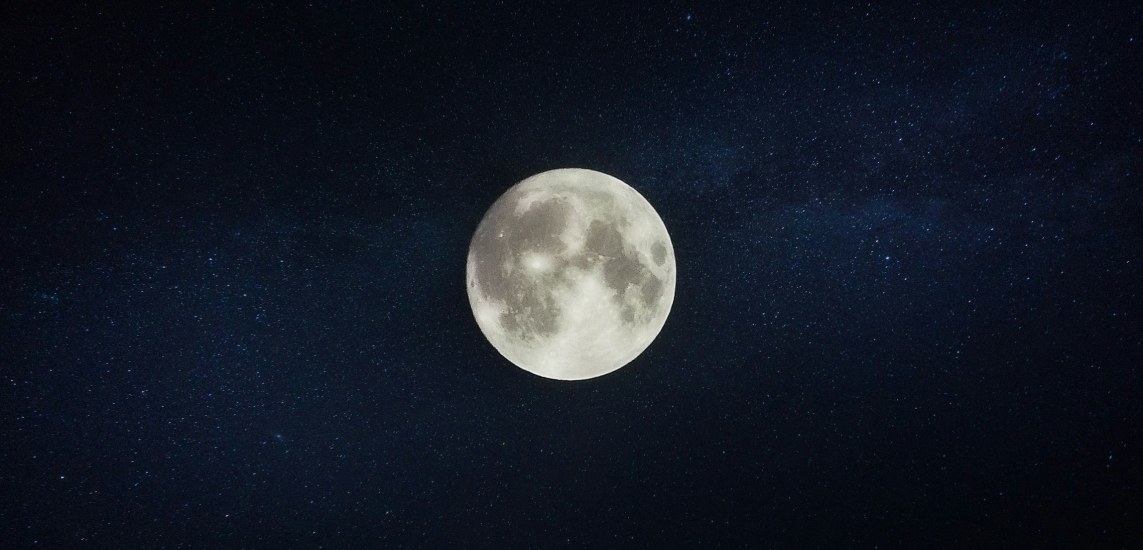This essay explores the suffering that arises when due to unmet needs for love and safety, our desire becomes fixated on substitute gratifications. Explore how to use mindfulness and compassion for healing addiction of any kind.
If you are more of a listener than a reader, you might want to listen to the audio version of this essay:


- Healing Addiction: De-Conditioning The Hungry Ghosts Tara Brach 52:21
Healing Addiction: Understanding & Overcoming Harmful Habits
Growing up, my mum was actively drinking until I was about 16 and then got very involved with recovery with AA. She was executive director of the National Council of Alcoholism for many years in the region that we lived in. I grew up with a lot of involvement and stories with the world of addiction, and of course, also all the AA jokes in the world came across our dinner table. One of them was,
A man goes into a bar, he orders a drink, the drink is served, he pushes it aside, he orders another drink, the bartender gives it to him and he drinks it, and the bartender says, ‘What gives?’ And he goes, ‘Oh, well I go to AA meetings, and they regularly say it’s the first drink that leads to trouble.’
I know I’m not alone. Most everyone I know struggles with their own version of addiction and has somebody nearby, if not themselves, who’s really, really struggling.
We know how addiction catches and confines our lives and creates a tremendous amount of pain. The habits, the harmful habits are the most difficult — we feel like they’re out of control, and we feel like we should be able to control them. There’s not only a sense of ‘it’s out of control’, but it’s also like ‘it shouldn’t be like that, I should be able to control it’. And yet, whether it’s anger, overeating, obsession, perfectionism and striving or whatever our version is, we hear about the Buddhist middle way of not being extreme in any direction, and it’s not easy when it is us struggling with our particular really difficult habit.
The Image Of The Hungry Ghost
In Buddhist cosmology, one of the psychic domains that’s described is the domain of the hungry ghosts. They’re depicted with scrawny little necks and this huge belly —the idea being that we have these very powerful desires or are riddled with desire, but never able to really satisfy ourselves. It is one of the archetypal patterns of suffering — that we, in some way, move through life with a sense that something’s missing, that it’s not okay how it is right now. It can take a feeling of restlessness or can go all the way to the extreme of craving for something that’s not here. But there is a sense that it’s around the corner, that the next moment—so we hope—will contain what this moment does not. There’s not a sense of real enough contentment. It’s not like we get to really arrive and be here.
There Are Different Versions & Levels Of Addiction
We’re going to explore addiction and the different levels of craving. It can be just an uneasiness, something’s missing, got to get to the next thing, all the way to grasping on to what we want — to full-blown addiction.
One of the things that I’ve been seeing over and over again is that as we wake up on a spiritual path, they’re still there, that just the most obvious ones aren’t living color, but the more subtle ones are completely activated.
So, we might not be addicted to opiates, but we might still be addicted to perfectionism, proving ourselves, our specialness, importance, being right or pleasing people. But whatever it is, even if it sounds not so bad, it still hooks us and stops us from really living from a deeper sense of presence and love.
The Hungry Ghost Grasping
When I was a junior in college, I started doing yoga and meditation. I remember after six months or so, I came across this phrase that how you live today is how you live your life. So I went, “Okay, today, what’s today like?” And I started looking more closely.
It was around the period of exams, so I realized, “Okay, well I’m just kind of hungover from a night of drinking coffee because I really wanted to ace this exam”. I was kind of kicking myself that day. At the cafeteria, they now and then had these ice cream spreads where you could just get any flavor of ice cream with any topping and as many rounds as you wanted. And of course, I’d overdone it. So I was kicking myself for wanting to lose weight, but also obsessing about a relationship where I wanted more intimacy. The point is, I was really getting the ‘hungry ghost syndrome’… How much of that day was tugged around by wanting something more and different? I was also reading “Be Here Now“ by Ram Dass…It wasn’t fitting together.
So, this was me chasing after too many things, really getting a hit of that ‘hungry ghost grasping’.
The Bad & Good News About Habits
We have a bundle of habits, some of them are healthy, and some are not. There’s a kind of ‘bad news, good news’ thing:
- Our habits of the day really do affect our experience. If our habit is to be judging other people, condemning ourself, constantly worrying or constantly fantasizing and daydreaming, it’s going to affect how we experienced the day. And if that’s the way we’re doing today, we’re likely going to do tomorrow that way. That’s the bad news.
- The good news is neuro-plasticity. We’re finding out more and more about how we pay attention dramatically affects both the structure and the function of our brain, mind, and heart, how we live, and that in any moment, like right now, you can have a certain kind of thought going through. And if you pay attention, you witness that thought and go, “Wait a minute, that thought just keeps creating separation between me and somebody.” In that very moment, you can say goodbye to the thought. You can step out. Now, if it has a lot of energy to it, it’ll pull you back in, but you get more and more with this capacity to be aware of what’s going on. That is the power of meditation.
So, meditation can directly decondition the habit of grasping, the ‘hungry ghost syndrome’. However, I want to make clear that meditation does not get rid of desire. The probably biggest misunderstanding that I run into about Buddhism is that we’re trying to vanquish desire.
Understanding Addiction: The Difference Between Desire & Unmet Needs
We wouldn’t be here if it weren’t for desire. This universe wouldn’t exist if it weren’t for attraction, for things coming together wanting to live, wanting to flourish.
Desire is not a problem. In fact, the word desire comes from the Latin, dēsīderāre, and that means “away from your star”. It’s the longing that comes up when we sense in some way we’re separate from what we love, we’re separate from that energy and awareness and love that’s really our source. Desire kind of draws us back to it, and in a very human way, the desires that we have are wholesome and natural to survive and flourish—desire to be fed and nourished, desire to have wholesome esteem, desire to bond and connect with others. All good.
The challenge is when our basic needs are not met. Our basic needs for safety, healthy bonding, a healthy sense of our value—when they’re not met, desire contracts, gets very fixated and riveted on substitutes. We might want love, but we’ll go for soothing ourselves with food, just an example. We’re trying to get a reward, some relief, some something.
It is really interesting how this primitive reward system is activated in fruit flies when their basic needs are denied. This is from the Washington Post some years back:
The male fruit flies deprived of sex may turn to alcohol as a source of pleasure, from the magazine ‘Science’. It says males in two different groups were compared. In one group, the males were repeatedly rejected by the virgins who they met and were making advances towards. And then both groups of males were allowed to choose between two food options, plain food mash, and then a food laced with alcohol. The sexually satisfied males didn’t go for alcohol. The ones that were rejected, they went right for it.
When we have unmet needs, we’re rigged to try to satisfy them some other way, we go for something else, we go for substitutes. It’s part of the way our system is wired. And it’s this contracting of desire and fixating that causes suffering.
I think the most powerful way it’s expressed is through Sri Nisargadatta. He says,
“Desire is devotion to the infinite, the eternal heart of being.”
Therefore, it’s not desire that’s wrong, but only its narrowness and smallness.
Read more: Unmet needs also play a significant part when it comes to controlling (or not controlling) anger. Read Tara Brach’s essay on how to let go of anger with mindfulness.
The If-Only Mind
When we have not gotten our needs met and we’re going for substitutes, we live with what is called ‘if-only mind’—if only I could have such and such, that would do it, then I’d feel good, then I’d feel happy.
Most of us have ‘if-only mind’ operating through the day. If there’s any hungry ghost stuff going on, it’s because something in us thinks, like maybe I thought back in college, “Well, if only I had that extra bowl of ice cream, well, if only I lost that 10 pounds, if only this guy really was willing to be more intimate, if only I aced the exam.” There’s something in us that feels like that’s going to do it, and we mobilize around that.
This is where the delusion is. We anticipate that when something good happens, it’s going to make us happier than it actually does. And when something bad happens, it’s going to make us unhappier. Research has shown that lottery winners, after a certain amount of months, end up no happier than non-winners, and paraplegics usually become as contentious as people that can walk. It’s because most of us have a ‘happiness set point’. We have spikes up and spikes down, but we kind of come back—unless we meditate, which actually changes your set point.
We have ‘if-only’ on certain substitutes. We all have some of them. I’ll just review a few, and you can kind of sense for yourself.
Substitute Gratification As A Response To Unmet Needs
There are culturally accepted substitute gratifications. If we didn’t feel loved or we didn’t feel we got the approval or we got criticized a lot, we can get fixated on accumulating some wealth, having physical beauty or social status, competing and winning a lot, power, fame…
When women are depressed, they eat or shop. When men are depressed, they attack another country. It’s not always that gendered. Excuse me if you take it wrong. But one of the most pervasive unmet needs where we can see the substitute going is the need to feel good about ourselves, to feel like we’re worthwhile.
I always think of the dog on the psychiatrist’s couch saying, “You know, it’s always ‘good dog this’ and ‘good dog that’, but is it ever ‘great dog’?”
The substitute is because we feel like we’re really falling short or we’re never enough. Either way, it’s the hungry ghost, because we then get very hooked on overworking, always trying to prove and improve ourselves. Usually, one of the substitutes is rushing and trying to check things off the list. It’s usually perceived as socially acceptable—the busy person that’s trying very hard to get things done and achieve.
Some of the substitute gratifications that we have we just keep quieter. They are considered not condoned, not acceptable because you can see the harm in them. Addiction to substances, eating too much sugar, drinking too much alcohol, smoking too much pot, taking opiates, whatever it is—we can see the harm of it. And then, of course, gambling, sex addiction, aggression, violence… we can see the harm in them, too. That genre? Still unmet needs. They’re more primitive unmet needs in some way, more of a deep kind of wounding, and it can combine with a genetic tendency and create a biological addiction.
Whether it’s the condoned kind of substitute gratifications that most of us get away with and don’t think about too much or the ones that are frowned upon, either way, there are unmet needs. It’s a contracted and fixated kind of desire. And as long as we’re pursuing it, as long as we’re doing the ‘hungry ghost thing’, we can’t deeply free ourselves.
The Looping Anatomy Of Habits
If you think of the anatomy of a habit, like the dynamic of it, we get a cue. There’s a thought saying, “Oh, I’ve got to have something sweet to eat right now.” It’s a craving. Then we do a routine to satisfy it. We go down to the refrigerator and get a few scoops of Ben and Jerry’s or whatever it is, and then there’s the reward, the temporary feelings of pleasure. And that feeds the cue again so the next time we hear that voice, we do the same thing. It’s just loops and loops and loops. That’s the basic anatomy of a habit: you get a cue, you do an activity, you get a reward, and it feeds the cue.
Read more: Habit change expert Hugh Byrne explains how habitual behavior forms and why mindfulness is a key of breaking bad habits.
The 3 Levels Of Suffering That Fuel The Addiction Loop
There are three primary experiences of suffering that, through Buddhist psychology and Western psychology, you can see coming when you’re in that ‘hungry ghost looping’.
1. The Eternal Loop Of Unsatisfaction
One of them is the obvious one, which is the fix is very temporary and you never really get satisfaction for the real need. It just doesn’t work. It’s like drinking saltwater, except for in AA they say, one makes you feel like a new person. Then the new person has to have another drink. It’s like that.
So, if your hungry ghost is going for, e.g., feeling good enough, you want to feel worthy, and your way to do it is to just achieve. That sets off hard work, and the reward is when you achieve something, you feel that burst of, “Hey, I matter, I’m important,” and that feeds the cue again. If that’s your looping, it gets really interesting if you start asking yourself, “Well, when would I really finally ever be enough? How many achievements? How many people would have to really think the world of me, to ever really be enough?” What we find out is that it can never work. It’s just like that. We’re eternally looping. That’s one level of suffering; you can never satisfy the deep need.
2. Self-Hate And Self-Aversion
The second level of suffering is what we call the second arrow. If the first arrow is that you’re caught in a loop and grasping after something, the second arrow is that the hungry ghost does not like itself (self-aversion). That shame, that self-aversion keeps on fueling the loop more than any other factor. The more we hate ourselves for the way we eat, judge people, strive, are selfish, lose our temper at our children, the more we hate ourselves for it. Actually, it creates more of an unmet need and more fuel to go ahead and try to soothe themselves.
The shaming and judgment is the next level of the suffering, and it’s a really deep one. I can say personally, I’ve never seen anyone heal an addiction without addressing shame in a very profound way. I’ve never seen anyone heal addiction to hating themselves into better behavior.
3. We Are Not Present
The third experience of suffering is that in the moments we’re in the ‘hungry ghost looping’, we’re not present. We miss out on a lot of life. It brings up deep sadness to sense how many moments of our life we are on our way somewhere else. Are we thinking it should be different? I need something more, and whether it’s the more obvious, I need to have that food to make me feel better, or the more subtle, I need to just get this done before I can relax. How many moments are we postponing this life on our way to the finish line, so we’re not present?
When we’re in that trance of something’s missing, we don’t take in spring. We don’t really take in the smells and the colors and the feeling of new life. We’re just not here for it. We don’t take in the realness when we’re with each other. We just aren’t there for it, we’re on our way.
Short Guided Practice For Waking Up Out Of The Hungry Ghost Loop
Let’s pause for a moment together and take a moment to check-in. Invite yourself right here:


- Guided Practice For Waking Up Out Of The Hungry Ghost Loop Tara BrachBrach
Explore our free collection of guided meditation for addiction recovery that can help control emotions and increase mental clarity.
Healing Harmful Habits: Filling The Hole In The Soul
Some years ago at an MIT conference, addiction researchers and scientists looked at the intricacies of the human brain. One of the participants in the conferences, William Moyers—that’s Bill Moyers’ son who’s very well known for his work in the field of addictions in his own very point in struggle—gave a talk there. I want to just share a bit of it with you because I find it so powerful. He said,
“I have an illness with origins in the brain, but I also suffer from the other component of this illness. I was born with what I like to call a hole in my soul, a pain that came from the sense that I wasn’t good enough, that I wasn’t deserving enough, that you weren’t paying attention to me all the time, that meant you probably didn’t like me enough.”
The conference room was completely quiet because they’ve been hearing from scientists all day. He said,
“For us addicts, recovery is more than just taking a pill or getting a shot. Recovery is also about the spirit, about dealing with that hole in the soul.”
This is right at the core of the hungry ghost, this sense that at that kind of deep, deep level we’re disconnected from basic goodness, from a sense of basic connectedness with others—this hole in the soul. We then go off pursuing substitutes that can’t possibly begin to touch it. And we find they don’t work.
Here’s what’s important to know: whichever way you get snagged, it’s a flag of waylaid desire. If you can stay with that energy, you can come back home, you can start turning back to your star, but you have to learn to stay with it—with mindfulness and with self-compassion.
How can we take these flags of desire? We each have them. I haven’t run into anybody that doesn’t have some version of the hungry ghost on some level. We all are chasing after things.
Mindfulness & Compassion To Heal Addiction
How do we take some of the places we’re chasing that are most confining our life and say, “okay, this is a flag of kind of a twisted desire, but at the root, this longing to be with my star, this longing to come home to the light and the awareness, the love, the connectedness, that’s here.” How do we come back to that?
I’d like to describe how we can bring mindfulness and compassion to kind of unlayer, to decondition going after the substitutes.
I’d like to share with you a little bit of some of the work that I spent a number of years with when I was still an active psychotherapist doing groups that were blending meditation and psychotherapy. I came to the realization I had looked a lot into addiction as part of my dissertation work. One of the things I learned in my dissertation was, yes, meditation works. But for any longevity in terms of being able to change habits, you have to have a relational field that supports you—it doesn’t work alone. These addictions are really, really tenacious and we need to wake up together around them.
Discover hundreds of free guided meditations for compassion that can increase our responsiveness and motivation to relieve the suffering of others.
The Power Of A Group
I did a number of different groups where we worked on that and we just brought together mindfulness and compassion. I give you a little bit of a sample of how these groups would work because you can translate it, take the pieces and work with yourself in these ways, but it’s really important to then plug it into connecting with others around it.
In one of the groups, I remember one of the first people to share—a woman who described that since she was a teen, she’d been overweight, and she was fine and moderate throughout the day, even sometimes through dinner, but every single night she’d end up eating way, way too many sweets— said she had tried everything. She had tried meditation, didn’t budget. She’d been in and out of OA. She had tried all these different therapies—a lot of dead ends. (Different people in the group had their own versions. I remember one person was struggling with alcohol, another one with work addiction that was creating his wife wanting to divorce him for it, somebody dealing with jealousy, somebody with co-dependence—the whole range.)
The first step was that the woman was just describing this food addiction she’d had most of her life, the shame she felt for being so out of control and how it was worse for her because her body showed it. It’s like she was walking around the world and everybody could see she was out of control.
We then went around the group and other people were sharing the habits that they were caught in and let her know that their shame was pretty deep too, and it didn’t matter that everybody couldn’t see it right away, their self-hatred and aversion for the ways their habits were affecting their life was really gripping them.
It was very helpful for everybody to hear from each other how, whenever we’re stuck, not only are we stuck, but we also hate ourselves for being stuck. There’s some sense of personal weakness and badness. And just to hear other people felt that too, made it a little less personal. It lightens it up. That’s the power of a group. If we’re living within our own bubble of addiction, we will not realize that.
1. Mindfulness Inquiry: A Message To Your Place Of Shame
Love is always loving you. — Punjaji
We explored how to begin to let meditation hold that shame. I asked them to get in touch with where they felt out of control and sense the feeling of shame about it, then go to the place in them where there was the highest wisdom and sense the message that this shame place needs most:
“If you could say one message, one message from your high self to offer to the place of shame, what would help you the most?”
For Punjaji “Love is always loving you” was the message. Others had different messages. Some just said, “Forgive yourself”, others, “It’s just not your fault”, “You’re doing the best you can”, things like that.
That was the first step, to acknowledge the shame and then find some way from a larger part of our being to be with the shame. Because again, you can’t heal addiction or grasping if you hate the hungry ghost. We’re all together at this phase, right?
The group’s assignment was to not try to change the habit but to be a friendly witness. In your own work, finding a way to forgive yourself, to know you’re really doing the best you can doesn’t mean you can’t do better. You’re trying as hard as you can right now. To remove the layer of blame is to begin working with the deeper needs.
Read more: Do you know that practicing forgiveness has a huge impact on our ability to stay mindful? Read what forgiveness is, how it is linked to mindfulness and how we can be more forgiving.
2. Mindfulness Inquiry: Identifying The Triggers
The group came back and started noticing they can witness better because they weren’t so busy blaming themselves. They could watch the looping that I described before. They started getting clearer on their cues.
Anybody who’s done deep work with habit knows you have to identify the triggers. You have to kind of see, “Oh, okay, this is what’s getting me going right now,” so you can be more alert, so you can choose different ways to do things.
We went into our next mindfulness inquiry, which was,
“When you’re wanting whatever it is, the fix, what are you really wanting to experience?”
This is the second mindfulness question. The first is how do you work with the shame? The second is what is it you’re really wanting? And this is the question that goes from “you’re going after the substitute gratification, but what is it you’re really wanting?”
When you’re like that hungry ghost going after something, what is it you want to experience? Often, the first layer is, “Well, I’m feeling angst and craving or uneasy and I just want relief.” Yeah, but what’s that like?
For the woman that I mentioned at the beginning, this was her process. When she wanted sweet, she wanted relief. She just felt this agitation in her. She just wanted its soothe. She said, “Oh, well, the relief when I get that, then it’s like I’m spreading out again, I’m more open, I’m more alive, I’m more here.” So, it’s like ice cubes melting. When she had the sugar, she could just relax and then she was more… “aah.” I kept asking her, “Well, what does that give you? If you get to feel the relief, and you spread out, and you feel more open.” She said, “Well, then I’m more at home, then I feel more alive, then I feel like I belong.” I said, “Okay, so feel that right now.” She said, “Oh yeah, just like a lot of liveliness, a lot of space, a lot of ease. It’s like there are no boundaries.” She was feeling the expression of her star. She was coming home to her star.
This is part two, what are you really desiring, and can you sense how it’s right here? If you keep checking it, I call it tracing back desire, what is it you’re wanting?
3. Mindfulness Inquiry: Moving Towards Your Star
So, you get triggered and you’re going into the activity of your obsessive thinking, eating, lashing out or whatever it is that might bring you a reward of relief or whatever the reward is. If you plan ahead and you imagine that you’re triggered—and instead you’re going to have a pause, you’re going to breathe and get right here, feel some mindfulness.
“What alternative activity might help turn you towards your star in those moments? What might give you what you want?”
The key with habit change is that you need to know how to pause, notice what’s going on, and in that pause, sense in a fresh way, what really would bring me more towards my star?
The woman in my group would have thoughts about sweets. She would breathe mindfully and just stay put for about a minute, and then tell herself, if she was feeling the sense of “I’m a bad person, I shouldn’t be wanting sweets”, she would say, “Love is always loving you. Calm down the shame part.” Her activity that she substituted before she would go pursue sweets was to send a loving email to someone dear to her. After that, she’d have something that she knew she liked to read, and she’d already have prepared for her some fruits, berries or an apple or something. And if after she went through those things, she still wanted to go downstairs, she’ll go downstairs and get sweets, and it worked about 50% of the time for a few months.
She rejoined OA and has continued to be able to keep the habit going of being more moderate. Interestingly, for some of the people that left the group, all of them experienced some freedom from their habits, but it was the ones that got involved with either OA, some of our spiritual friend groups locally or another group that were able to sustain the habit change over time.
Community Is Key For Healing Addiction & Harmful Habits
There’s a reason it doesn’t work trying to change our habits by ourselves, the really strong ones I’m talking about.
There’s been some very good research done with AA. What works is to be able to identify the cues and to have a new activity to get a reward. In other words, rather than drinking the alcohol, go to a meeting or substitute activities. What makes the difference that people can sustain the habit chain is a belief that they can do it, a belief that it is possible. What gives them that belief, that confidence is being involved with other people.
Some of them say that the belief took the form of, “I know a higher power has entered my life.” I’ve seen the same thing with people in meditation groups say, “Oh, I now trust that I have a refuge right here, this awareness or presence right here,”
You could change the language, but that belief, that sense that “I know there is a capacity to turn towards the star, that there is a presence and a love that’s here, I trust that that’s growing”—that belief is what allows the new behavior to actually get integrated. We generally need others to help remind us. In fact, that’s why when the Buddha shared the Dharma originally 2,500 years ago, Sunga or community was key, because when one person was having a hard time, somebody else could be more of a model for waking up.
Noticing, Pausing, Choosing: 3 Steps Of Healing Addiction With Mindfulness & Compassion
We started with that sense of how we live today is how we’re living our life. And to sense how much of that is shaped by the hungry ghost, by pursuing, knowing that whatever we regularly practice is strengthened. So, if we regularly practice going after sugar, blaming other people or ourselves, perfectionism or sensing we’re always falling short, then we’re going to keep strengthening those loops, those pathways.
The invitation here is that we can, in any moment, notice that and choose to pause, choose to bring a real tenderness to the parts of us that are feeling ashamed, that love is always loving us, that there is a tenderness that can hold us. We have the capacity to pause and to make fresh choices.
There’s a quality of grace in it—that it’s not a self that’s getting out of a bad habit, it’s awareness, waking up, and this practice of mindfulness and compassion makes us more available.
You might just take a moment to sense as you have been, the behavior perhaps you’ve identified. Just send a message, an energy of genuine forgiveness, understanding, care. The hungry ghost begins to lose its power when it’s met with compassion.
Just to feel your intention, next time pause, deepen your attention a little, the sense what fresh possibilities might be available.
The poet Rumi writes,
“This is how a human being can change. There’s a little worm addicted to eating grape leaves. Suddenly he wakes up, call it grace, whatever, something wakes him, and he’s no longer a little worm. He’s the entire vineyard and the orchard too, the fruit, the trunks, a growing wisdom and joy that doesn’t need to devour.”
Namaste.





-1.jpg)

